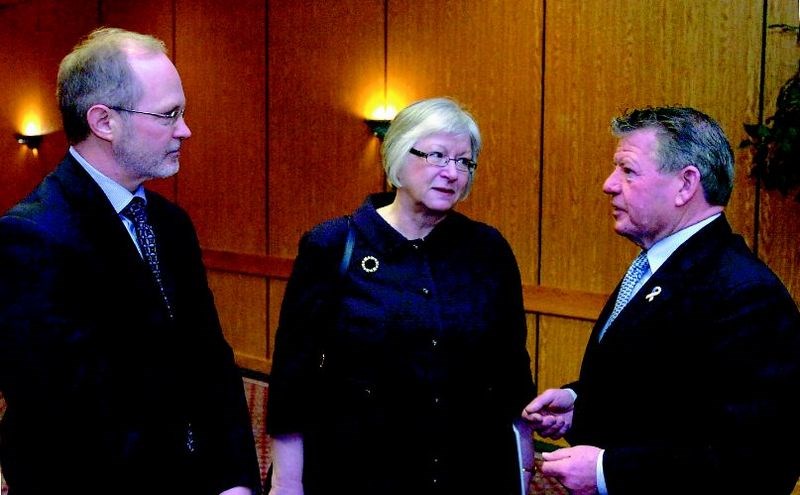Canada's auditor general office, with its nearly $100-million budget and 635 staff, helps build a better country, a Prince George Chamber of Commerce breakfast was told Monday.
That's because the auditor general's office helps provide information to Parliament so they can hold government to account for handling public funds, Canada's auditor general Sheila Fraser told a packed audience of more than 120 at the Ramada Hotel.
"Our motto is we report what we find," said Fraser, whose 10-year term comes to an close at the end of May.
She provided several examples of her office's work.
An auditor general examination showed that bureaucrats in charge of replacing Canada's aging helicopters didn't follow their own rules or understand how complicated the projects were making them more expensive and delaying delivery up to seven years.
The National Defence and Public Works and Government Services Canada, the department in charge of purchasing, also didn't tell cabinet about the extensive changes the Sikorsky Cyclone maritime helicopter and the heavy-lift Boeing Chinooks needed to meet their needs, the audit found.
Fraser said the helicopters were supposed to be ready off the shelf. Instead, they needed substantial modifications that could increase the price by 70 per cent, she said, drawing a gasp from the Prince George Chamber of Commerce audience.
Fraser also highlighted an audit by Environment and Sustainable Development Commissioner which found the Canadian Coast Guard lacks the training, equipment and management systems to fulfill its duties to respond to offshore pollution incidents such as oil spills.
The information is important given the discussion around an oil tanker ban on B.C.'s northwest coast, she said.
However it's not all bad news. Fraser said the Canada Food Inspection Agency is doing a good job in preparing for animal disease outbreaks like the avian flu, which also have implications for humans.
She is perhaps best known for her report on the sponsorship scandal that unveiled questionable practices by Liberals in Quebec. Her report confirmed serious problems in the federal government's management of its sponsorship program for a four-year period beginning in 1997.
Fraser's visit to Prince George fulfilled the "wish" of members who'd submitted her name when a request went out for potential speakers, said Chamber president Roy Spooner.
Her name was also top choice for the event's official sponsors, KPMG and The Citizen.
Fraser took the opportunity to explain that half of the auditor general's audits are financial, but the other half are performance audits.
And while the auditor general is not a watchdog, the performance audits are undertaken on a risk-based approach: an examination of what's most meaningful and likely to have the greatest impact, said Fraser.
The auditor general carries out its work in consultation with government departments and most Crown agencies to ensure they have the facts straight. But if there are recommendations, government departments are now required to produce an action plan, and there is a follow-up audit, she said.
"That's a rewarding part of our job -- we do see things change," she said.
But demonstrating that the auditor general's work leads to improvement is also important for the public, who can legitimately question what value they are getting for the office's nearly $100-million-a-year budget, said Fraser in an interview following her presentation.
She said the public is calling for more transparency and accountability.
To that end, during her tenure, Fraser instituted a policy of producing reports in plain language so average Canadians don't have to labour through bureaucratic jargon.



